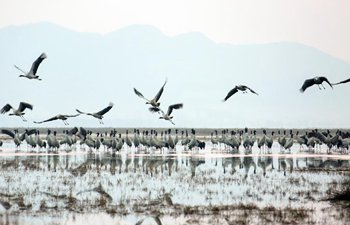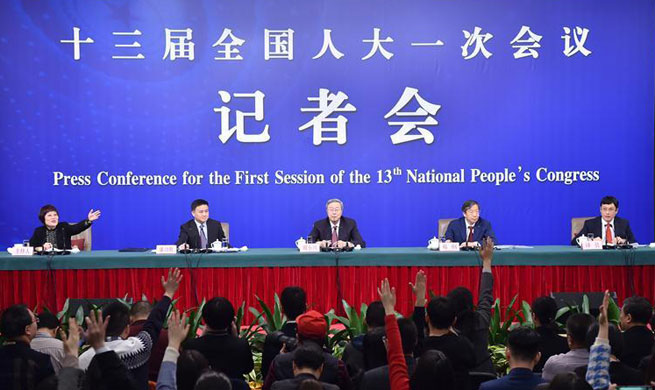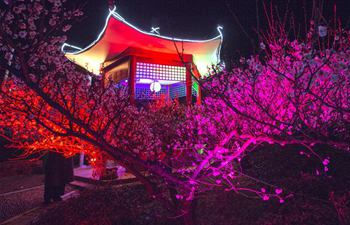XI'AN, March 9 (Xinhua) -- The spring farming period is the busiest time of the year for Shi Yixian, 52, a crop seed dealer in Henan Province, one of the largest agricultural bases in China.H "My seed quality is very good. Many customers will return to my store for a second year," said Shi, who started his business nearly 30 years ago.
Shi said his sales method has completely changed in recent years. Seeds were previously sold to farmers by weight, but now they are sold by the number of seeds.
The change came with China's agricultural supply side reform, which has encouraged farmers to pursue intensive farming with a higher use of input, such as capital and labor per unit land area.
"Farmers did not pay too much attention to seed quality. They just bought a bag of seeds and planted them on the land," said Shi. "The germination rate of poor quality crop seeds was as low as 60 to 70 percent, leading to a low output."
But now most farmers prefer to choose seeds based on size and shape, as well as strong disease resistance, according to Shi.
A tomato seed developed by Shaanxi Jinpeng Seedling Company is among the most popular products at Shi's store. He has done business with the company for 18 years.
One of the largest tomato breeding companies in China, Jinpeng was established in 2002 in Xi'an, capital of northwest China's Shaanxi Province.
The company moved to the Yangling Demonstration Zone, one of China's leading crop seed R&D bases, in 2010 when the company started to sell by the seed.
"We generally package 1,000 seeds in a box weighing between 3 and 4 grams," said Li Yongning, head of Jinpeng's R&D office in Yangling. "The price ranges from 200 yuan to 350 yuan (32 to 55 U.S. dollars) per package, depending on their quality."
"Instead of planting several seeds of poor quality in one hole, one high-quality seed per hole leads to a better germination rate -- as high as 95 percent," said Li.
The rising demand for high-yield crops has also spurred agricultural companies to increase R&D investment in high-quality seeds.
Jinpeng invests as much as 6 million yuan each year to develop new seeds, accounting for a quarter of the company's annual sales revenue, said Li.
"We prefer to buy famous seed brands that have higher germination rates and stronger disease resistance," said Ke Xiliang, a wheat farmer in Shaanxi. "Good-quality seeds are the guarantee of good agricultural products, which can be sold at a better price in the market."
Chinese farmers are accelerating their exploration of intensive farming, said Dong Yongli, director of the R&D center of Shaanxi Weilong Agricultural Science and Technology Company.
"This exploration will bring bright prospects for modern agricultural development in China," said Dong.

















